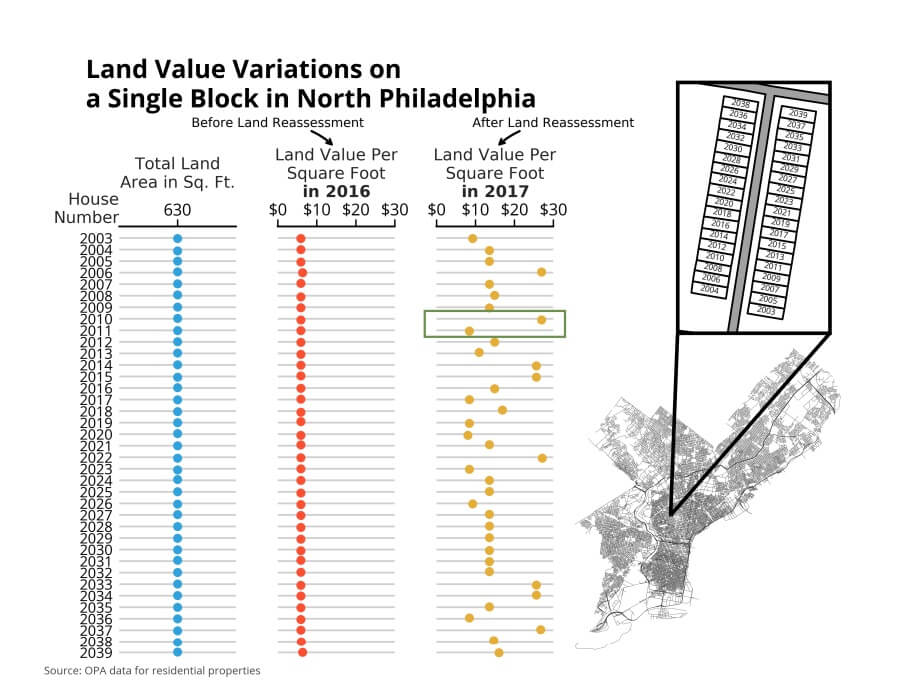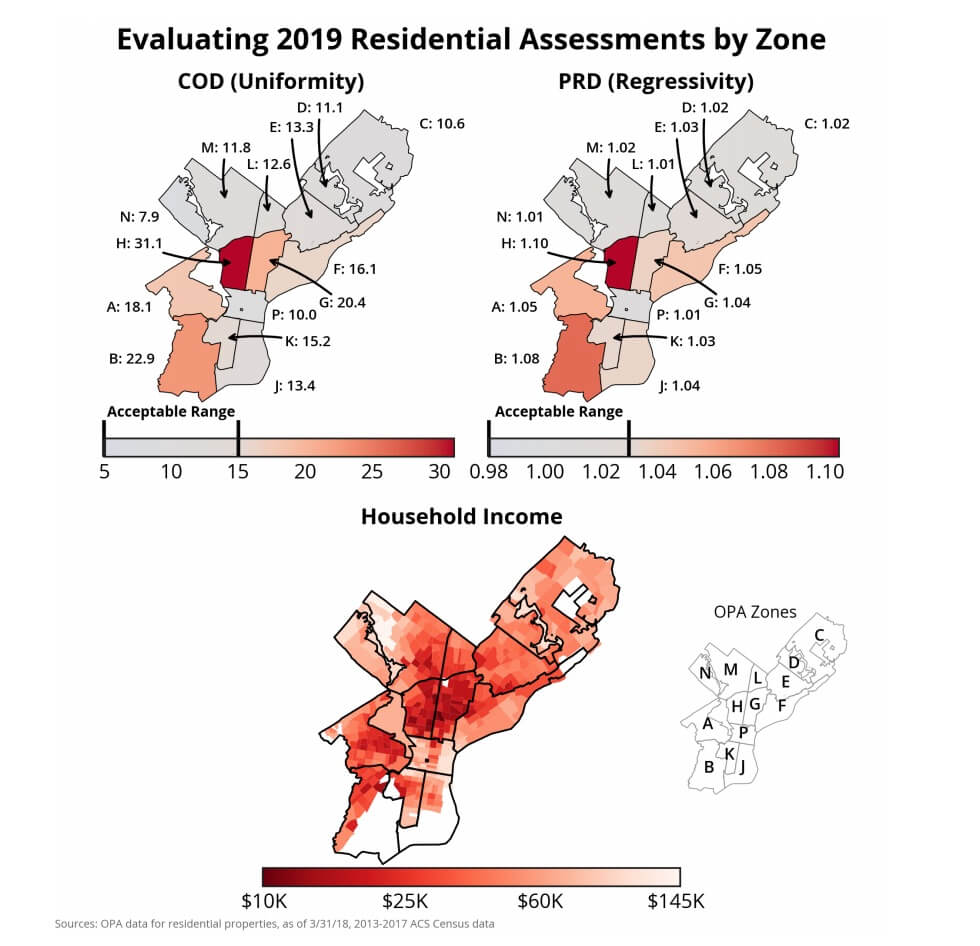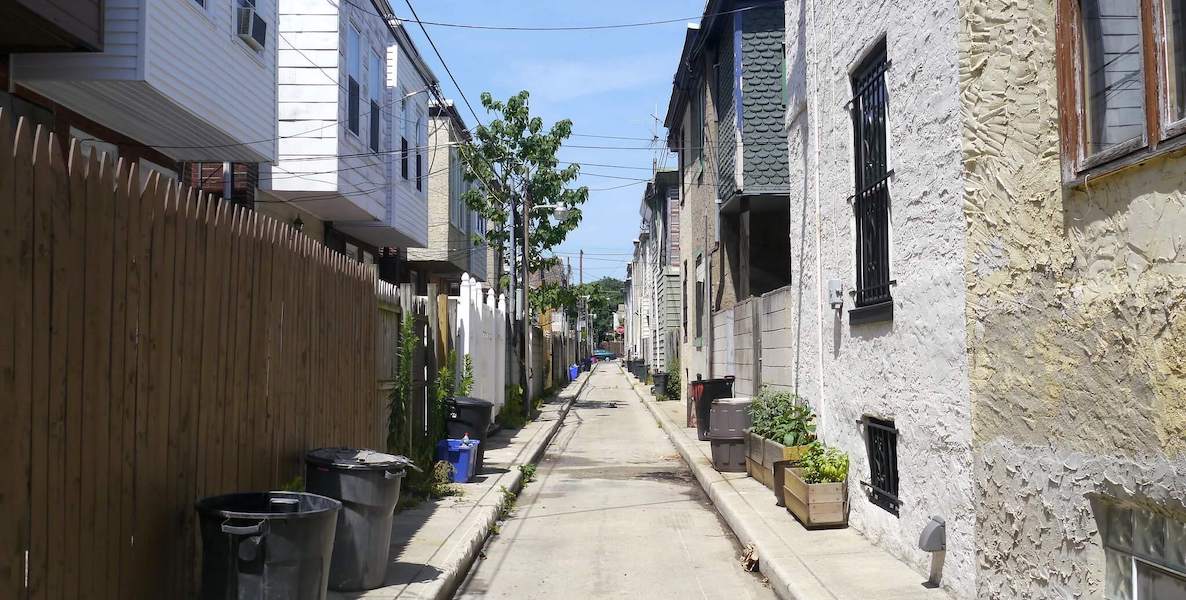The Kenney administration announced this week that the City will postpone real estate reassessments for an additional year, after also postponing last year’s reassessments, citing the impending Computer-Assisted Mass Appraisal (CAMA) system rollout and Covid-related complications as compelling reasons to delay marking assessed values to market.
The administration is still searching for a new chief assessment officer for the Office of Property Assessment (OPA) after their lead assessor Michael Piper came under heavy scrutiny from City Council and members of the public following the last round of assessments. And the city is still saying their (CAMA) is just around the corner. But it’s been been saying that for years.
The few places where market values have been rapidly rising will welcome a temporary reprieve from accurate assessments, but this decision also has some big downsides.

First, it’s not the case that everybody’s assessments have gone up—there are some neighborhoods where property values have still been dipping, and this decision means that property owners in those areas will have been overpaying property tax bills multiple years in a row, with no anticipation of redress when the actual values are finally recorded.
City Controller Rebecca Rhynhart released an analysis of the fairness and accuracy of property assessments in January 2019 and found that lower-income areas of Philadelphia were more likely to be over-assessed as a result of policy choices at OPA.

Secondly, the Kenney administration is only creating a political headache for itself next year, when people will see the last three years of value appreciation show up all at once in their tax bills after the next assessment.
This has caused a lot of confusion and acrimony whenever OPA’s taken a few years off at a time, and the politics can get ugly.
There’s a lot to unpack with reassessment politics, but a big part of the issue is that nobody likes seeing their taxes go up, and some of the complaints you hear about inaccurate assessments are really complaints about accurate assessments.
This decision means that property owners in some areas will have been overpaying property tax bills multiple years in a row, with no anticipation of redress when the actual values are finally recorded.
If residential price growth stays on its current trajectory, people who are upset about property taxes going up every year in appreciating neighborhoods aren’t going to be happier under a more brutally accurate CAMA assessment system either.
Understand property taxes in your neighborhoodDelve Deeper
According to some unofficial analyses, the amount of potential revenue forfeited as a result of these policies since 2013 totals in the high hundreds of millions, so this isn’t just an academic concern.
Advocate for changeDo Something
In advance of the Actual Value Initiative in 2013, which finally got Philadelphia onto a regular reassessment schedule after some earlier litigation, Council passed a raft of programs to protect longtime homeowners, low-income homeowners, and seniors from big jumps in their property bills.
A new paper from researchers at the Philadelphia Fed and Stanford University from April 2020 found those programs were wildly successful, and found “no sign of a large-scale departure of elderly or longterm homeowners in gentrifying neighborhoods within five years after adoption of the new policy.”
Under the circumstances, it would be much better for Council to spend its time looking for ways to close any remaining gaps in this system rather than moving away from the AVI concept of regularly marking assessments to current market values.
Issues like tangled titles for inherited properties—and incomplete participation stemming from the requirement that people apply for these programs instead of being automatically enrolled—could be fixed to make the practical effects of our property tax system much less regressive, while continuing to collect on real market values from people who can better afford to pay.
Jon Geeting is the director of engagement at Philadelphia 3.0, a political action committee that supports efforts to reform and modernize City Hall. This is part of a series of articles running on both The Citizen and 3.0’s blog.
Header photo by Jon Seidman / Flickr





